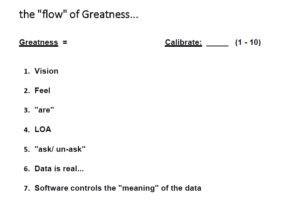When does leadership go wrong? How do we troubleshoot this process?
Always run an internal self-check first: bold and courageous leaders will troubleshoot differently than above average leaders. You’ve got to ponder which version of you is doing the troubleshooting.
Then, today’s content addresses the underlying nature of your motivation, another “axis” to evaluate and calibrate who you are and how you show up:
“Stage” energy:
- Stage I – internal, self-serving first
- Stage III – external, service to others driven
- Stage II – hybrid of both
When we look at the different forms of personal interactions, one of the many axis’s that we can look at is called stage one, two and three.
In essence, stage one characteristics are the raw, organic form (meaning the sentence that you would form, the thought that you would have, the belief that you are creating) of internalized, self-serving, and selfish – it’s about you, it is focused on your personal gain. While some people might assign half empty meanings to that, it’s not that it’s bad, you just have to have consciousness about when you’re selfish and not.
A great metaphor to describe this is when the oxygen mask drops down on an airplane, whose mask do you put on first?
You have to put on yours first, you can’t put it on your child until you have yours on. When we study airplane crashes, 80% of people tried to put it on their kids. The problem isn’t oxygen, the problem is hypoxia. You will pass out in generally six to ten seconds from air decompressing in the cabin. When you pass out and your child has passed out, if the pilot succeeds in getting the plane down lower, neither one of you has been breathing oxygen the whole time.

Sometimes, leaders must be selfish. And if you’re the type that always wants to give and don’t know when to stop and take care of yourself, you will eventually run out of resources, and you struggle to be a great leader. Leaders have to know when to be Stage I, know when to be selfish. There are times to do that, and there’s times not to do that.
You ARE going to build something, and depending on your actions, whether you’re building it for your ego or you’re building it to serve humanity becomes the deep question:
Are you doing it so that people will put you on a pedestal, or are you doing it so you can put your whole team on a pedestal?
What is the driver and the motivation of your choices?
When you’re doing things in service of others, we call that “stage three”. The point of this is that when you are in service: you care, you’re sincere, and you want the best for everyone, people will give you a lot of allowances to make mistakes, push them harder, and say bold and outrageous things to them.
Whereas in the older models, when we look at average to above-average leaders, they’re making sentences, creating thoughts, and making choices about what they can or can’t do or what the team can and can’t do based on rational analysis.
When you are bold and outrageous and you’re tapped into their heart, soul, and inspiration and you believe in them more, and you are doing it in service of the team, you will discover that people will give you more, produce more, and will be willing to handle your growth as a leader.
You don’t have to be a natural-born, perfect leader starting out. You have to make a lot of mistakes, but if you’re doing them with judgment, deprecation, recrimination, and blame, you will not experience greatness, awesomeness, or extraordinary. If you are focused on avoiding mistakes, you will only get less pain on your very best day, and great leadership must be about more pleasure, success, and rewards.
That’s why these traits carry through in the science of it, and it is a learned application. You don’t need to be a born leader. You just need to care a lot. Is that a natural-born trait? Do natural-born leaders care more? No, they don’t. Caring is software. Caring is driven by how you write the equations to what kind of leader you are.


Leave a Reply
Post a comment. Your email is safe with us.